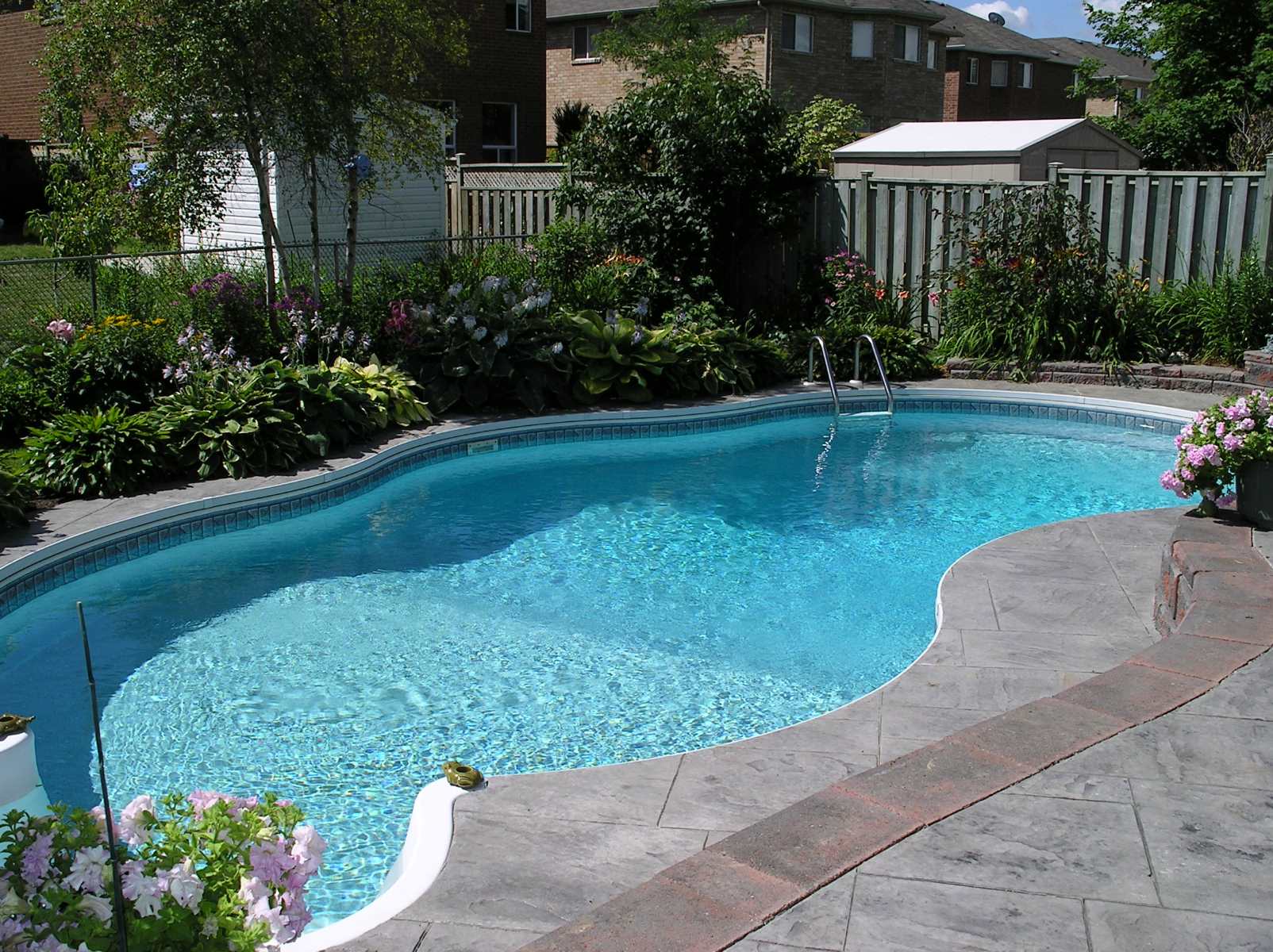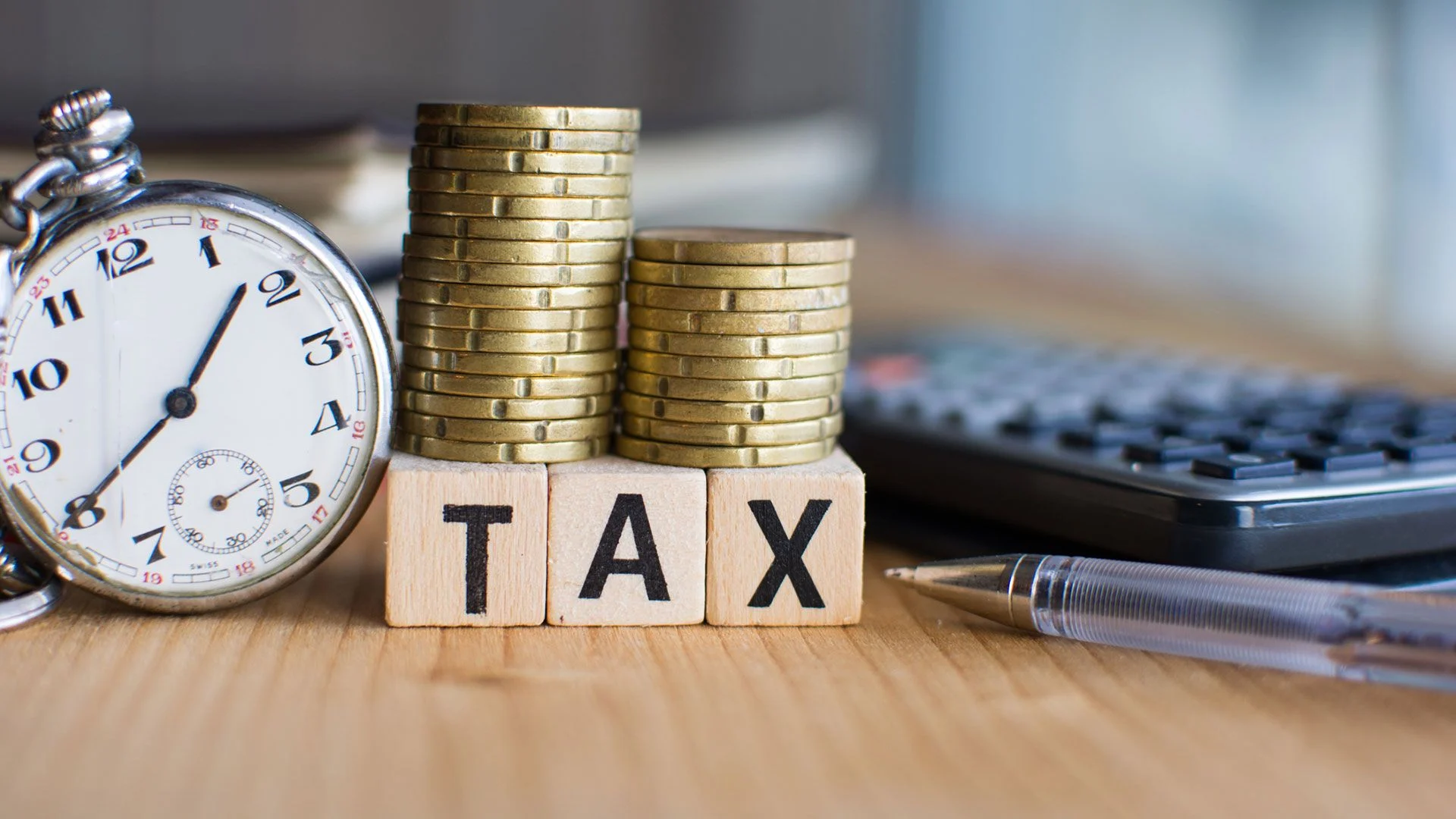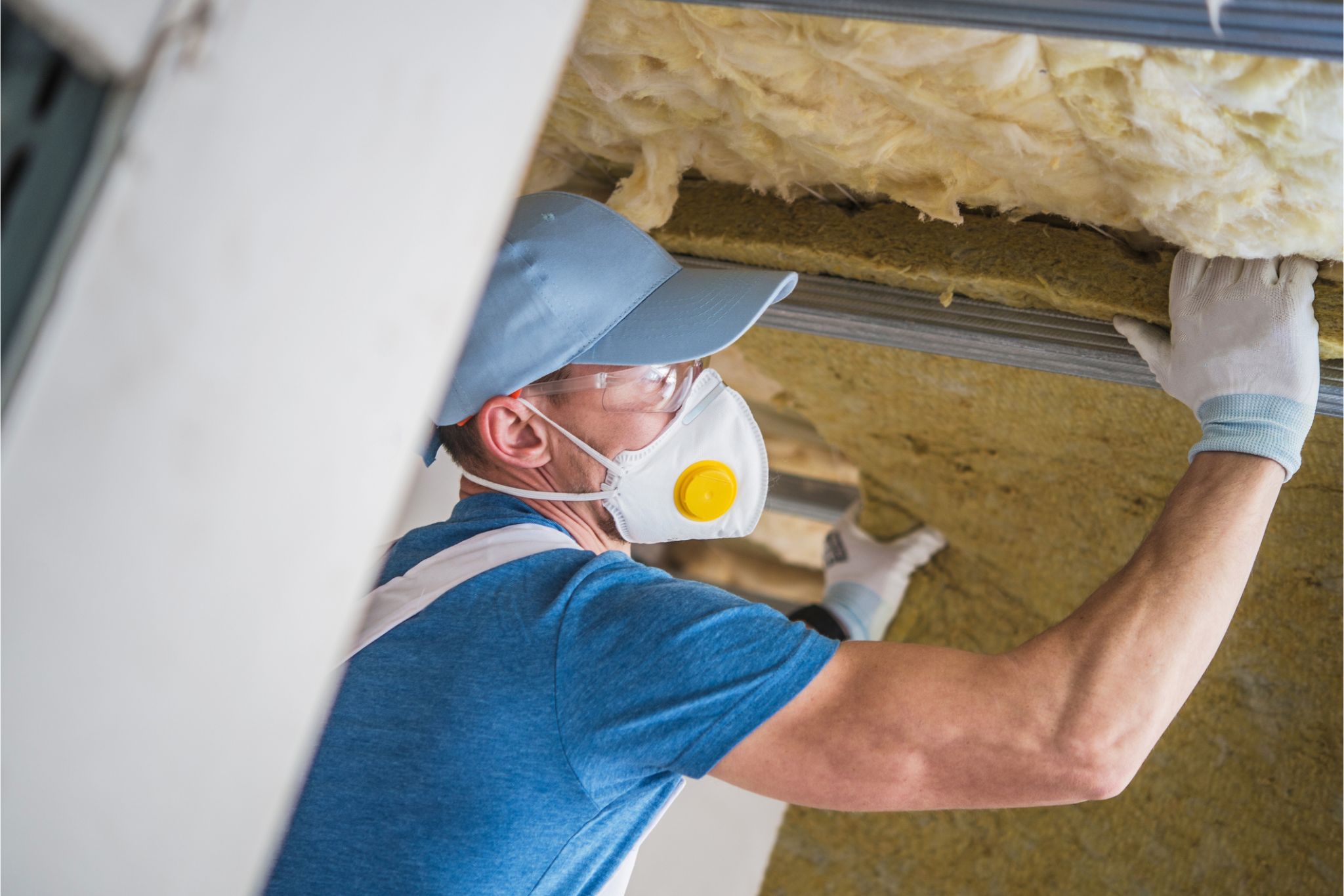Home>Home Maintenance>What Home Maintenance Costs Can You Deduct On Taxes?


Home Maintenance
What Home Maintenance Costs Can You Deduct On Taxes?
Modified: March 6, 2024
Discover which home maintenance costs you can deduct on your taxes. Find out how to save money on repairs and upgrades with our comprehensive guide.
(Many of the links in this article redirect to a specific reviewed product. Your purchase of these products through affiliate links helps to generate commission for Storables.com, at no extra cost. Learn more)
Introduction
When it comes to owning a home, there are many responsibilities and costs that come with it. From regular maintenance to unexpected repairs, being a homeowner means taking care of your property. However, did you know that some of these home maintenance costs may be deductible on your taxes?
Understanding which home maintenance costs can be deducted on your taxes can help you save money and maximize your tax benefits. By taking advantage of these deductions, you can potentially reduce your taxable income and receive a larger tax refund.
In this article, we will explore the various home maintenance costs that may be eligible for tax deductions, helping you navigate the complex world of tax benefits for homeowners. It’s important to note that while the information provided here is meant to provide general guidance, it is always advisable to consult with a tax professional or accountant for specific advice tailored to your individual circumstances.
So, let’s dive into the world of tax deductible home maintenance costs and discover how you can potentially save money on your taxes while keeping your home in top condition!
Key Takeaways:
- You may be able to deduct certain home maintenance costs from your taxes, such as repairs, energy-efficient upgrades, and property taxes. Consult a tax professional to understand eligibility and documentation requirements.
- Keep detailed records of receipts, invoices, and contracts for home maintenance expenses to support your tax deductions. Understanding the eligibility criteria and staying informed about tax regulations is crucial for maximizing your tax benefits as a homeowner.
Understanding Tax Deductible Home Maintenance Costs
Before we delve into the specific types of home maintenance costs that may be deductible on your taxes, let’s first clarify what it means for a cost to be tax deductible. When a cost is tax deductible, it means that you can subtract the value of the expense from your taxable income, thereby reducing the amount of tax you owe.
However, not all home maintenance costs are eligible for tax deductions. To qualify, the expenses must meet certain criteria set by the Internal Revenue Service (IRS) in the United States. It’s important to note that tax laws vary from country to country, so it’s advisable to consult your local tax authority or a tax professional to understand the specific regulations in your jurisdiction.
In general, for a home maintenance cost to be tax deductible, it must:
- Be directly related to the maintenance or improvement of your home
- Be necessary or essential to keep your home in good condition
- Not be for aesthetic purposes or for increasing the value of your property
It’s also worth noting that some home maintenance costs may be deductible in the year they occur, while others may need to be depreciated over several years. A tax professional can help you determine the appropriate treatment for each expense.
Now that we have a basic understanding of tax deductible home maintenance costs, let’s explore the different types of expenses that may qualify for deductions on your taxes. By taking advantage of these deductions, you can potentially reduce your taxable income and enjoy financial benefits as a homeowner.
Eligibility for Home Maintenance Tax Deductions
While there are various home maintenance costs that may be eligible for tax deductions, it’s important to understand the eligibility criteria set by the tax authorities. To qualify for these deductions, you must meet certain requirements and keep thorough documentation to support your claims.
Here are some key factors that determine eligibility for home maintenance tax deductions:
- Primary Residence: Typically, only expenses related to your primary residence are eligible for tax deductions. If you own multiple properties, make sure you are claiming deductions for the appropriate home where the expenses were incurred.
- Itemized Deductions: In most cases, home maintenance costs are claimed as itemized deductions on your tax return. This means that instead of taking the standard deduction, you must list and provide documentation for each individual expense. It’s important to keep receipts, invoices, and other relevant documents to substantiate your claims.
- Ownership and Use: To claim deductions for home maintenance costs, you must own and use the property as your primary residence. Renters or those who own properties solely for investment purposes may not be eligible for these deductions.
- Benefit Threshold: Some deductions, such as energy-efficient improvements, may have a benefit threshold. This means that the cost of the improvement must exceed a certain amount before it is deemed eligible for tax deductions. Be sure to check the specific rules and regulations regarding benefit thresholds for different types of home maintenance costs.
It’s important to consult with a tax professional or accountant to ensure that you meet all the necessary requirements and to receive guidance on accurately claiming these deductions. They can help you navigate the complex tax laws and make sure you are maximizing your deductions while staying compliant with the regulations.
Now that we understand the eligibility criteria for home maintenance tax deductions let’s explore the various types of home maintenance costs that can potentially be deducted on your taxes.
Types of Home Maintenance Costs You Can Deduct on Taxes
When it comes to deducting home maintenance costs on your taxes, there are several categories of expenses that you may be eligible to claim. Let’s explore some of the common types of home maintenance costs that can potentially be deductible:
- Repairs and Maintenance: Expenses incurred for repairs and general maintenance of your home can often be deducted on your taxes. This includes costs for fixing plumbing issues, repairing the roof, painting, replacing broken windows, and other similar repairs that are necessary to keep your home in good condition.
- Home Office Expenses: If you have a designated space in your home that is used solely for business purposes, you may be eligible to deduct expenses related to your home office. This can include a portion of your utilities, mortgage interest, property taxes, and repairs that are directly related to your home office.
- Energy-Efficiency Improvements: Making energy-efficient upgrades to your home can not only help you save on utility bills but can also qualify for tax deductions. Examples include installing solar panels, energy-efficient windows, insulation, or upgrading to energy-efficient heating and cooling systems.
- Property Taxes and Assessments: Property taxes paid on your primary residence can often be deducted on your taxes. Additionally, special assessments for improvements or upgrades in your neighborhood may also be eligible for deductions, depending on the specific regulations in your jurisdiction.
- Mortgage Interest and Points: The interest you pay on your home mortgage is often deductible on your taxes. Additionally, points paid at the time of the mortgage closing may also be eligible for deductions, subject to certain conditions. It’s important to consult with a tax professional to ensure you are properly claiming these deductions.
- Insurance Premiums: Premiums paid for homeowner’s insurance are generally not tax-deductible. However, there may be situations where certain types of insurance, such as private mortgage insurance (PMI) or flood insurance, can be eligible for deductions. Again, it’s recommended to consult with a tax professional to determine if you qualify for these deductions.
- Homeowners Association Dues: If you are a part of a homeowners association (HOA), the dues you pay to the association may be deductible on your taxes. However, it’s essential to determine if the dues are used for maintenance and improvement of common areas in the community.
Remember, these are just some examples of home maintenance costs that may be deductible on your taxes. The specific rules and regulations surrounding deductions can vary, so it’s crucial to consult with a tax professional to understand which expenses are eligible for deductions in your specific situation.
Now that we have explored the types of home maintenance costs that can potentially be deductible, let’s discuss the documentation requirements you need to fulfill to successfully claim these deductions on your taxes.
Repairs and Maintenance
One of the most common types of home maintenance costs that may be deductible on your taxes is expenses related to repairs and general maintenance of your home. Repairs and maintenance are necessary to keep your home in good condition and prevent further damage or deterioration.
The following are some examples of repairs and maintenance costs that may be eligible for tax deductions:
- Fixing plumbing issues, such as repairing leaks or unclogging drains.
- Repairing the roof due to damage from storms or wear and tear.
- Painting the interior or exterior of your home.
- Replacing broken windows or doors.
- Repairing or replacing faulty electrical wiring or fixtures.
- Fixing or replacing damaged flooring.
- Maintaining and servicing your HVAC system, including regular cleaning and tune-ups.
- Repairing or replacing appliances, such as your refrigerator or stove.
To be eligible for tax deductions, these repairs and maintenance expenses must meet the criteria set by the tax authorities. The costs must be considered necessary and essential to keep your home in good condition, rather than for purely aesthetic purposes or to increase the value of your property.
It’s important to keep thorough documentation of these expenses to support your claim for deductions. This includes retaining receipts, invoices, and any other relevant records that demonstrate the nature and cost of the repairs or maintenance performed.
It’s worth noting that expenses for improvements or renovations that add value to your home, such as adding a swimming pool or remodeling a kitchen, typically do not qualify for immediate tax deductions. Instead, these costs may be added to the basis of your home and potentially reduce any tax liability when you sell the property.
Keep in mind that the rules and regulations surrounding tax deductions for repairs and maintenance can vary depending on your jurisdiction. It’s always advisable to consult with a tax professional or accountant to ensure you are properly claiming these deductions and maximizing your tax benefits.
Now that we have covered repairs and maintenance as a potential deductible home maintenance cost, let’s move on to explore another category of deductions – home office expenses.
Home Office Expenses
If you have a designated space in your home that is used exclusively for business purposes, you may be eligible to deduct home office expenses on your taxes. This deduction is applicable to both self-employed individuals and employees who work remotely from home.
Here are some key points to consider when it comes to home office expenses:
- Exclusive and Regular Use: To qualify for the deduction, the space in your home must be used regularly and exclusively for business purposes. It should be a separate area dedicated solely to conducting your work activities.
- Types of Deductible Expenses: You can deduct a portion of various home-related expenses that contribute to the operation and maintenance of your home office. These expenses may include a proportionate amount of your mortgage interest, rent, utilities, property taxes, homeowners insurance, and costs of repairs and maintenance specific to your home office.
- Calculating the Deduction: The deduction for home office expenses is typically calculated based on the percentage of your home that is used as your office. This can be determined by dividing the square footage of your office space by the total square footage of your home. For example, if your home office occupies 10% of your total home space, you may be able to deduct 10% of the eligible expenses.
- Special Rules for Employees: If you are an employee who works remotely from home, there are additional considerations. Your home office must be for the convenience of your employer, and you must meet certain criteria, such as not having a suitable workspace provided by your employer.
- Documentation: It’s crucial to maintain accurate records and documentation to support your home office expense deductions. This includes keeping receipts, invoices, and any other relevant documents that demonstrate the expenses incurred for your home office.
While the home office deduction can be advantageous, it’s important to ensure compliance with the regulations set by the tax authorities. Working with a tax professional or accountant can help you navigate the complexities and ensure you are accurately claiming the deduction.
Keep in mind that tax laws may vary depending on your jurisdiction. It’s essential to consult with a tax professional who is familiar with the specific regulations in your country or region to determine the eligibility and proper calculation of your home office expenses.
Now that we have covered home office expenses as a potential deductible home maintenance cost, let’s move on to explore another category – energy-efficiency improvements.
Energy-Efficiency Improvements
Making energy-efficient improvements to your home not only helps reduce your carbon footprint but can also make you eligible for tax deductions. These improvements can result in long-term energy savings and may be incentivized by tax benefits from your local government or the federal tax authorities, depending on where you reside.
Here are some examples of energy-efficient improvements that may qualify for tax deductions:
- Solar Panels: Installing solar panels to generate electricity for your home can be a major energy-saving upgrade. Depending on your jurisdiction, you may be eligible for tax credits or deductions that can help offset the cost of installation.
- Energy-Efficient Windows and Doors: Upgrading your windows and doors to energy-efficient ones can reduce heat loss or gain, improving your home’s insulation and energy efficiency. These upgrades may be eligible for tax credits or deductions in certain jurisdictions.
- Insulation: Adding insulation to your walls, attic, or floors can significantly improve your home’s energy efficiency by reducing heat loss or gain. Some jurisdictions offer tax incentives for insulation upgrades.
- Energy-Efficient HVAC Systems: Installing energy-efficient heating, ventilation, and air conditioning (HVAC) systems can lower your energy consumption and decrease your carbon footprint. Depending on your jurisdiction, you may qualify for tax credits or deductions for these upgrades.
- Energy-Efficient Appliances: Upgrading to energy-efficient appliances, such as refrigerators, dishwashers, or washing machines, can reduce your home’s energy consumption. Incentives in the form of tax credits or deductions may be available for the installation of these energy-saving appliances.
The specific tax incentives and deductions for energy-efficient improvements vary from country to country and even within different regions. It’s essential to research and understand the regulations and requirements established by your local government or tax authorities to determine your eligibility for these deductions.
Keep in mind that claiming deductions for energy-efficient improvements often involves documentation requirements, such as receipts, invoices, and certification from recognized authorities to prove compliance with energy-efficient standards. Working with a tax professional can help ensure you adhere to the necessary documentation and requirements to claim these deductions accurately.
Now that we have covered energy-efficient improvements as potential deductible home maintenance costs, let’s move on to explore another category of deductions – property taxes and assessments.
You can deduct home maintenance costs related to home office expenses, rental properties, or home improvements for medical purposes. Keep detailed records and consult a tax professional for guidance.
Property Taxes and Assessments
Property taxes are a regular expense for homeowners, but the good news is that they are often eligible for tax deductions. Property tax deductions can provide significant savings by reducing your taxable income. Additionally, certain assessments for improvements or upgrades in your neighborhood may also be eligible for deductions.
Here’s what you need to know about property taxes and assessments as potential deductible expenses:
- Property Taxes: Property taxes are assessed by local governments based on the value of your property. These taxes go towards funding public services such as schools, infrastructure, and emergency services. The amount you pay in property taxes can be fully or partially deductible on your taxes, depending on the regulations in your jurisdiction.
- Special Assessments: In some cases, your local government or homeowners association may levy special assessments for improvements or upgrades in your neighborhood. These assessments can be for projects such as road repairs, park renovations, or utility upgrades. Depending on the regulations in your area, these special assessments may be eligible for tax deductions.
- Deduction Limits: It’s important to note that there may be limits on the amount of property tax deductions you can claim. Some jurisdictions may restrict the maximum deduction amount or impose income-based limitations. Understanding these limits can help you accurately calculate your eligible deduction.
- Documentation: To claim property tax deductions, you will typically need to provide documentation that shows the amount of property taxes paid during the tax year. This can include property tax statements or receipts from your local government or tax authority.
It’s essential to consult with a tax professional or accountant to ensure you are properly claiming property tax deductions and adhering to the regulations in your area. They can guide you through the documentation process and help you understand any specific requirements that apply to your situation.
Keep in mind that property tax laws vary from jurisdiction to jurisdiction. It’s important to research and understand the specific rules and regulations in your area to determine your eligibility for property tax deductions.
Now that we have covered property taxes and assessments as potential deductible home maintenance costs, let’s move on to explore another category – mortgage interest and points.
Mortgage Interest and Points
For many homeowners, one of the most significant expenses is their mortgage interest. The good news is that mortgage interest payments are often eligible for tax deductions, providing potential savings on your taxes. Additionally, points paid at the time of the mortgage closing may also be deductible, subject to certain conditions.
Here’s what you need to know about mortgage interest and points as potential deductible expenses:
- Mortgage Interest: The interest you pay on your home mortgage is often deductible on your taxes. This deduction can include the interest paid on your primary residence, as well as a second home in some cases.
- Deductible Amount: The deductible amount may vary depending on the regulations in your jurisdiction. In the United States, for example, you can deduct the interest paid on up to $750,000 of mortgage debt for married couples filing jointly ($375,000 for married couples filing separately) or up to $500,000 for single filers.
- Points Deduction: Points, also known as loan origination fees or loan discounts, are prepaid interest paid at the time of mortgage closing. Depending on certain conditions, these points may be deductible. Each point is typically equal to 1% of your loan amount, and the number of points you can deduct will depend on the circumstances of your loan.
- Documentation: To claim mortgage interest and points deductions, you will need to provide documentation such as Form 1098, which is issued by your mortgage lender and provides the amount of mortgage interest paid during the tax year. You should also have documentation to support any points paid at the time of closing.
It’s important to consult with a tax professional or accountant to understand the specific rules and limitations regarding mortgage interest and points deductions in your area. They can guide you through the process and ensure you are accurately claiming these deductions.
Be aware that tax laws surrounding mortgage interest and points deductions can change, so it’s crucial to stay informed about any updates or revisions to the regulations in your jurisdiction.
Now that we have covered mortgage interest and points as potential deductible home maintenance costs, let’s move on to explore another category – insurance premiums.
Insurance Premiums
Insurance is a vital aspect of homeownership, and while most insurance premiums are not tax-deductible, there are some cases where certain insurance premiums may be eligible for deductions. Let’s explore the potential deductibility of insurance premiums:
- Homeowner’s Insurance: Generally, the premiums you pay for homeowner’s insurance are not tax-deductible. Homeowner’s insurance provides coverage for property damage or losses due to hazards such as fire, theft, or natural disasters. While you cannot directly deduct these premiums, having insurance coverage is essential to protect your investment and mitigate potential financial risks in an emergency.
- Private Mortgage Insurance (PMI): If you obtained a mortgage loan with a down payment of less than 20% or for certain loan types, you may be required to pay private mortgage insurance (PMI). PMI protects the lender if you default on the loan. In some cases, the premiums paid for PMI may be tax-deductible, subject to certain income limitations and other criteria. It’s important to consult with a tax professional to determine if you qualify for a PMI deduction.
- Flood Insurance: If you live in a flood-prone area and have flood insurance coverage, the premiums you pay for flood insurance are generally not tax-deductible. However, there are instances where specific tax benefits or incentives may be available for flood insurance in certain regions affected by natural disasters. It’s advisable to consult with a tax professional or research local regulations to determine if any deductions apply in your area.
- Other Deductible Insurance Premiums: While homeowner’s insurance, PMI, and flood insurance are typically not tax-deductible, there may be other insurance types related to your home that could potentially be deductible. This could include business insurance for a home office or rental property insurance for income-generating properties. Consult with a tax professional to determine the eligibility of these deductions based on your specific situation.
Remember to keep thorough records of your insurance premiums and any supporting documentation for your tax records. While most insurance premiums may not be deductible, it’s important to understand the potential deductions that may apply to your situation and consult with a tax professional for personalized advice.
Now that we have covered insurance premiums as a potential deductible home maintenance cost, let’s move on to explore another category – homeowner association dues.
Homeowners Association Dues
If you live in a community governed by a homeowners association (HOA), you are likely required to pay regular dues to maintain common areas and cover shared expenses. While these dues are not typically tax-deductible, there are instances where a portion of the HOA dues may be eligible for deductions:
- Maintenance and Improvement Assessments: In some cases, a portion of your HOA dues may be allocated towards maintenance and improvement of common areas, such as landscaping, pool maintenance, or community facilities. These specific assessments, which directly contribute to the upkeep of shared spaces, may be eligible for deductions in certain jurisdictions.
- Special Assessments: Homeowners associations may sometimes levy special assessments for significant projects or unforeseen expenses. These assessments go beyond regular HOA dues and help fund major repairs or renovations within the community. Depending on your jurisdiction, these special assessments may also qualify for deductions.
- Proportional Deductions: If a portion of your HOA dues is eligible for deductions, it’s typically based on the specific percentage that relates to maintenance and improvement assessments. This means that only the portion directly attributable to qualifying expenses may be deductible.
- Documentation: To support any deductions related to HOA dues, it’s important to maintain proper documentation from your homeowners association. This can include statements or receipts that clearly outline the breakdown of your dues, particularly the portion that relates to eligible maintenance and improvement assessments.
It’s important to consult with a tax professional or accountant to understand the regulations and requirements regarding deductions for HOA dues in your area. They can provide guidance on the deductibility of these expenses based on the specific details of your community and the local tax laws.
Keep in mind that homeowners association rules and regulations can vary significantly. While deductions for HOA dues may be available in some cases, it’s important to consult with a tax professional to determine your eligibility for these deductions and ensure compliance with local regulations.
Now that we have covered homeowners association dues as a potential deductible home maintenance cost, we have explored various types of expenses that may qualify for tax deductions. Understanding these deductions and the associated documentation requirements can help you maximize your tax benefits as a homeowner.
In the next section, we will discuss the essential documentation needed to support these deductions on your tax return.
Documentation Requirements for Home Maintenance Tax Deductions
When claiming home maintenance tax deductions, it’s crucial to maintain accurate and detailed documentation to support your claims. Proper documentation not only increases your chances of successfully claiming deductions but also helps you remain compliant with tax regulations. Here are some essential documentation requirements to keep in mind:
- Receipts and Invoices: Keep all receipts and invoices related to your home maintenance expenses. These documents should clearly state the nature of the expense, the date of the transaction, the name of the vendor or service provider, and the amount paid. Having detailed records of these documents will substantiate your deductions and provide evidence of the expenses incurred.
- Contracts and Agreements: If you hire contractors or service providers for repairs or maintenance work, keep copies of the contracts or agreements. These documents should outline the scope of work, the agreed-upon price, and any warranties or guarantees provided. They serve as evidence of the services rendered and the contractual obligations related to the expenses.
- Proof of Payment: In addition to receipts and invoices, maintain proof of payment for all home maintenance expenses. This can include bank or credit card statements, canceled checks, or electronic payment confirmations. Proof of payment corroborates that the expenses were actually paid and helps establish a clear financial trail for the deduction claims.
- Form 1098: If you have a mortgage loan, your lender may send you Form 1098, which reports the amount of mortgage interest paid during the tax year. This form is an essential document for claiming deductions related to mortgage interest on your taxes. Make sure to retain this form and include it with your tax records.
- Home Office Documentation: If you are claiming deductions for home office expenses, maintain documentation specifically related to your home office. This includes a floor plan or measurement of your office space, records of purchases for office equipment or furniture, and utility bills highlighting the portion attributable to your home office.
By organizing and maintaining these essential documents, you can streamline the tax filing process and have the necessary evidence to back up your home maintenance deduction claims.
It’s also important to note that tax regulations can change, and specific requirements may differ based on your jurisdiction. Consulting with a tax professional or accountant can provide you with personalized guidance and ensure that you have met all the documentation requirements specific to your situation.
Now that we have covered the documentation requirements, let’s conclude our exploration of home maintenance tax deductions.
Conclusion
Understanding the home maintenance costs that may be eligible for tax deductions can significantly impact your financial situation as a homeowner. By taking advantage of these deductions, you can potentially reduce your taxable income and enjoy greater tax benefits. It’s important to note that while the information provided here is meant to provide general guidance, it’s always advisable to consult with a tax professional or accountant to ensure you are properly claiming deductions based on your specific circumstances.
We discussed various categories of home maintenance costs that can potentially be deducted on your taxes. Repairs and maintenance, home office expenses, energy-efficiency improvements, property taxes and assessments, mortgage interest and points, insurance premiums, and homeowners association dues are all potential deductions you can consider. However, it’s crucial to understand the eligibility criteria and any limitations or exceptions associated with each category.
Additionally, we emphasized the importance of proper documentation to support your deductions. Keeping receipts, invoices, contracts, and proof of payment is essential in substantiating your claims and demonstrating the legitimacy of the expenses incurred.
In conclusion, maximizing your tax benefits as a homeowner requires a careful understanding of the home maintenance costs that may be deductible. By staying informed about the tax regulations in your jurisdiction and maintaining accurate documentation, you can navigate the complexities of home maintenance tax deductions while ensuring compliance with the rules and regulations set by your local tax authorities.
Remember, the tax landscape is subject to change, and it’s essential to stay up to date with any revisions or updates to the tax laws. Consulting with a tax professional or accountant throughout the process will provide you with expert guidance and ensure that you are taking full advantage of the available deductions.
By leveraging the tax deductions available to you, you can keep your home in excellent condition while saving money on your taxes. So, be proactive, document your expenses diligently, and seek professional advice to optimize your tax benefits and financial well-being as a homeowner.
Frequently Asked Questions about What Home Maintenance Costs Can You Deduct On Taxes?
Was this page helpful?
At Storables.com, we guarantee accurate and reliable information. Our content, validated by Expert Board Contributors, is crafted following stringent Editorial Policies. We're committed to providing you with well-researched, expert-backed insights for all your informational needs.













